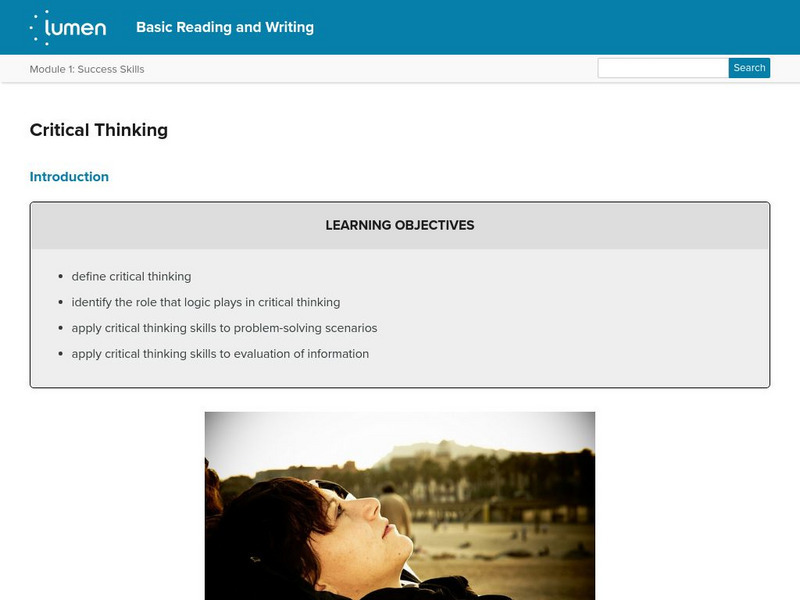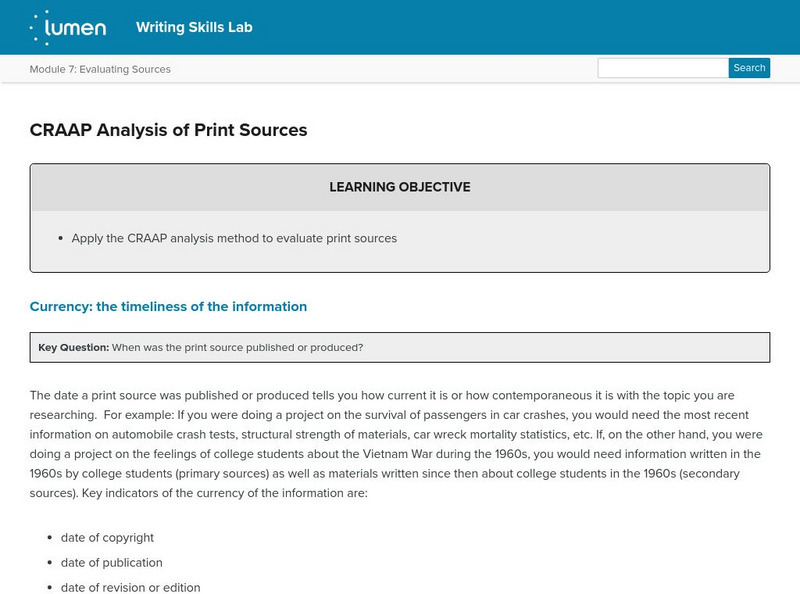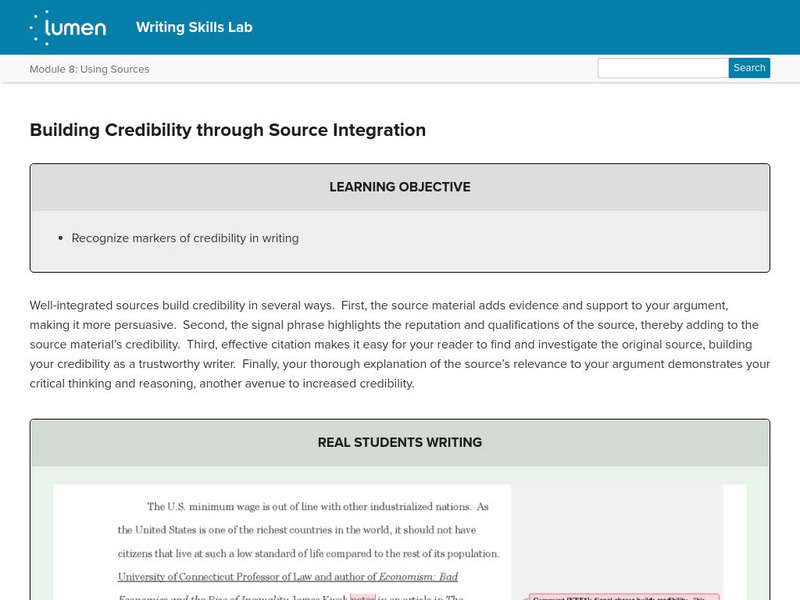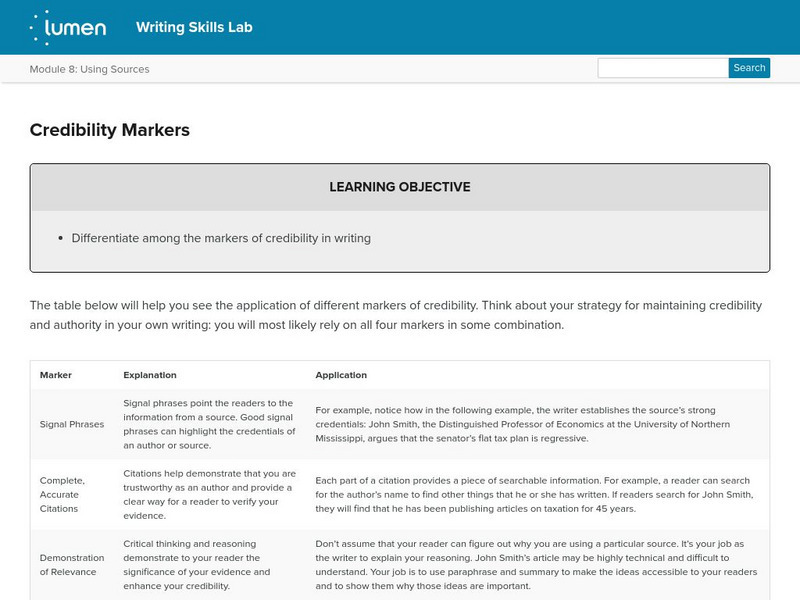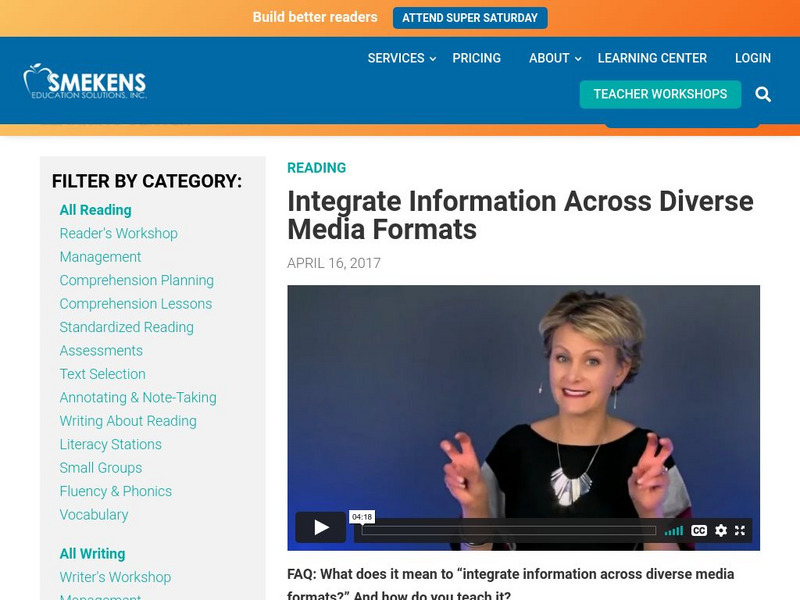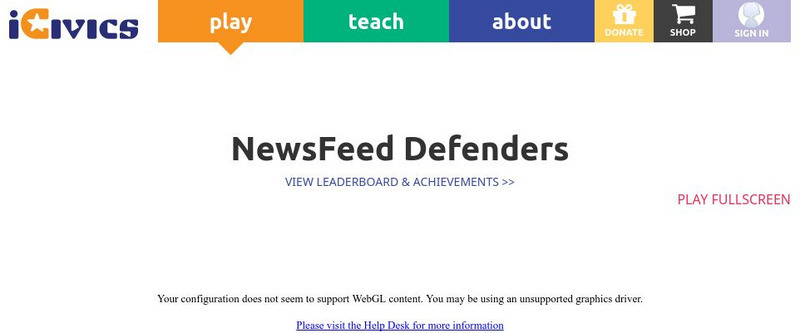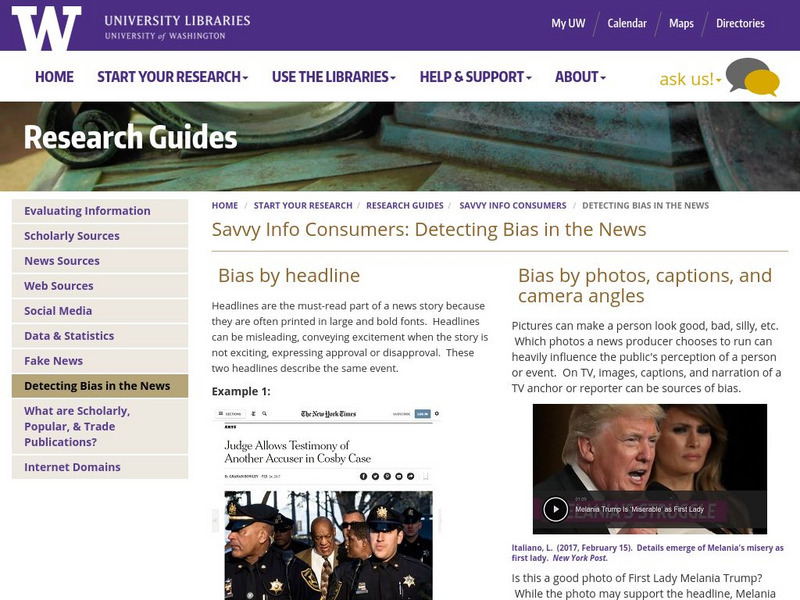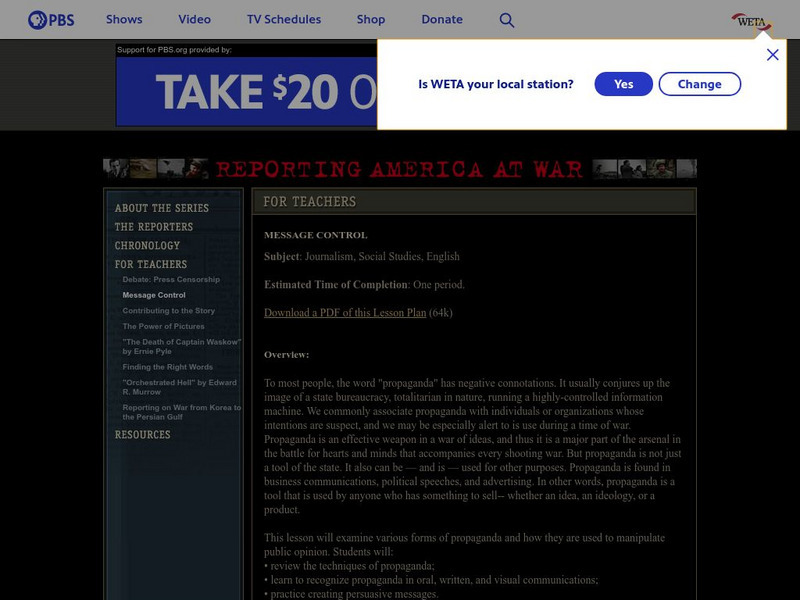Lumen Learning
Lumen: Boundless Communications: Understanding Bias in Language
This lesson plan focuses on bias in language such as gender and cultural bias and how to avoid them in public speaking. CCSS.ELA-Literacy.WHST.6-8.2.e
Lumen Learning
Lumen: Success Skills: Critical Thinking
This activity focuses on critical thinking including a definition, examples, a video of critical thinking in action, logic in critical thinking, questions a critical thinker asks, guidelines for critical thinking, problem-solving, and...
Lumen Learning
Lumen: Using Sources: Bringing Sources Into the Conversation
This lesson focuses on identifying the five components of the "source sandwich:" transition and introduction; a signal phrase; quotation, paraphrase, or summary; citation, and explanation of material's relevance. A practice exercise is...
Lumen Learning
Lumen: Evaluating Sources: Scholarly vs. Non Scholarly Sources
This lesson focuses on types of sources including scholarly vs. non-scholarly sources and print, online, and multimedia.
Lumen Learning
Lumen: Evaluating Sources: Craap Analysis of Print Sources
This lesson plan focuses on evaluating print sources using CRAAP Analysis: Currency, relevance, authority, accuracy, and purpose. A practice exercise is included. W.9-10.8 Sources
Lumen Learning
Lumen: Evaluating Sources: Introduction to Multimedia Sources
An introduction to methods of evaluating multimedia sources.
Lumen Learning
Lumen: Evaluating Sources: Craap Analysis of Multimedia Sources
This activity focuses on evaluating multimedia sources using the CRAAP Analysis: Currency, relevance, authority, accuracy, and purpose. Click on the NEXT button on the bottom right for more information. SL.11-12.2 Eval&Integrate sources
Lumen Learning
Lumen: Using Sources: Building Credibility Through Source Integration
This lesson focuses on building credibility by properly integrating source materials. It discusses three ways of improving credibility through integration, provides an example, and a practice exercise. SL.9-10.2 eval & integrate...
Lumen Learning
Lumen: Using Sources: Credibility Markers
This lesson focuses on strategies for maintaining credibility and authority in your writing. It also provides a table of different types of credibility markers, an explanation, and the application for each. SL.9-10.2 eval & integrate...
Lumen Learning
Lumen: Using Sources: Putting It Together: Using Sources
This is a summary of the lessons on integrating credible sources using paraphrase, summary, and quotations and citing sources. Click on the Next button on the bottom right to learn about Why It Matters: Multimodality; you will have the...
Lumen Learning
Lumen: Finding and Evaluating Research Sources
This lesson focuses on how to find, evaluate, and use primary and secondary sources using printed and online sources. It provides practice writing activities such as examining the same topic through primary and secondary sources and...
University of Victoria (Canada)
Uvcs: Critical Reading Exercise
Students read quotations from different "interest groups" or "lobbies" in this exercise and then perform a multiple-choice test to evaluate the credibility of each lobby group.
Other
Smekens: Integrate Information Across Diverse Media Formats
Read about strategies to help students integrate information across diverse media formats. Includes video. [4:18]
W. W. Norton
W. W. Norton: The Research Essay: Integrating Source Material Into the Essay
Information about integrating source material into an research essay. SL.11-12.2 Eval&Integrate sources
Other
Rhetorica Network: Media / Political Bias
A detailed explanation of how bias works is offered at this site, including critical questions for detecting bias in writing.
TED Talks
Ted: Ted Ed: How to Choose Your News
Damon Brown gives the inside scoop on how the opinions and facts (and sometimes non-facts) make their way into the news and how the smart reader can tell them apart. [4:48]
TED Talks
Ted: Ted Ed: How False News Can Spread
In previous decades, most news with global reach came from several major newspapers and networks with the resources to gather information directly. The speed with which information spreads now, however, has created the ideal conditions...
CommonLit
Common Lit: Units: Teaching Units
Complete teaching units (12) by grade level. CommonLit units are crafted to be both engaging and rigorous, featuring a variety of literary and informational texts from diverse sources. Reading, writing, and discussion are prioritized in...
BBC
Bbc Skillswise: Fact or Opinion
As part of the BBC's Skillswise unit, this resource covers the basics of separating fact from opinion through a worksheet, a factsheet, and a quiz.
Alabama Learning Exchange
Alex: If I Read It, It Must Be True
Working in groups, students identify methods of propaganda and analyze television, magazine, and Internet ads. Groups then create their own ad using one of the identified methods.
iCivics
I Civics: News Feed Defenders
NewsFeed Defenders is a challenging game designed to sharpen students' news literacy skills. Students will join a fictional social media site focused on news and information. They will learn elements of high-quality journalism to be able...
Khan Academy
Khan Academy: Perception, Prejudice, and Bias Questions
Questions pertaining to perception, prejudice, and bias.
University of Washington
Bias in the News
This handy page clearly explains various ways in which bias can creep into news reports. Examples of each method are given.
PBS
Pbs: Message Control (Lesson Plan About Propaganda)
A lesson that guides learners through an examination of various forms of propaganda and how propaganda is used to manipulate public opinion. Includes research into the history of propagandistic communications.



